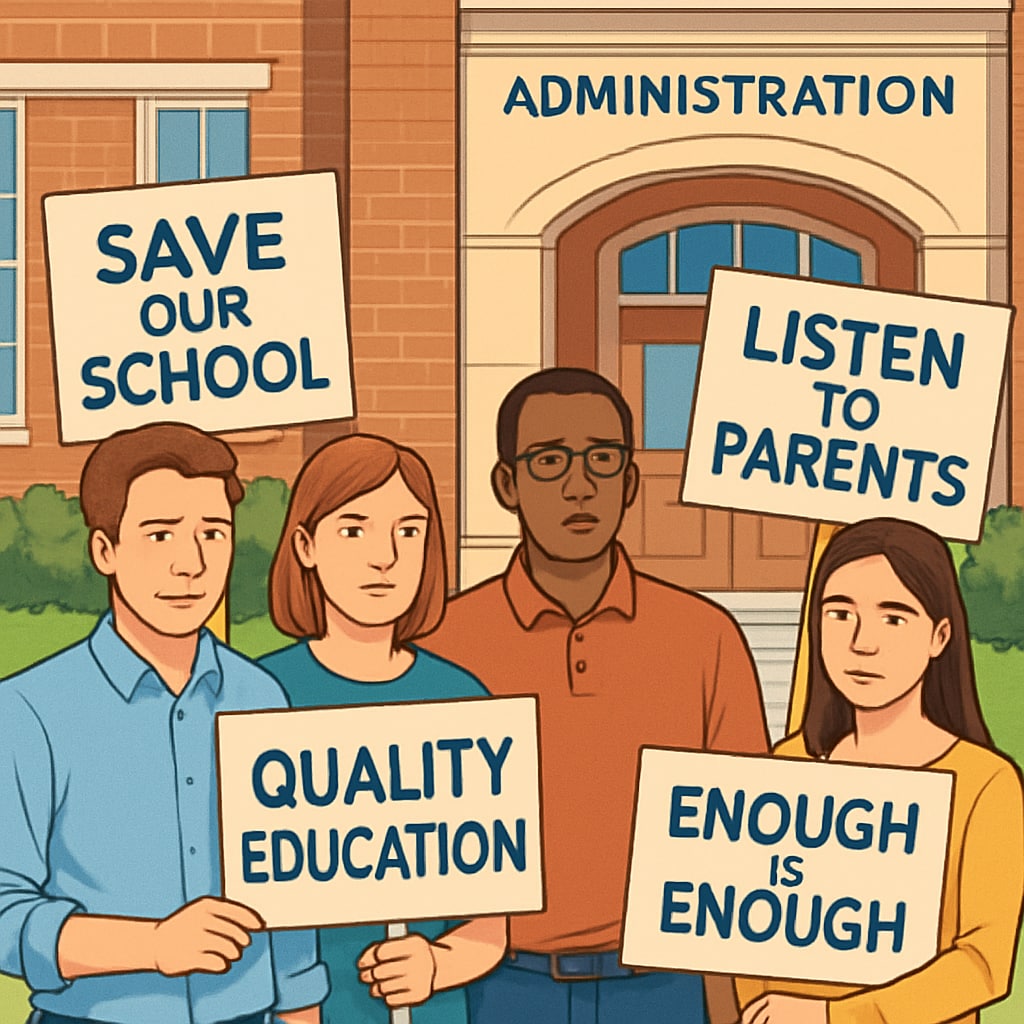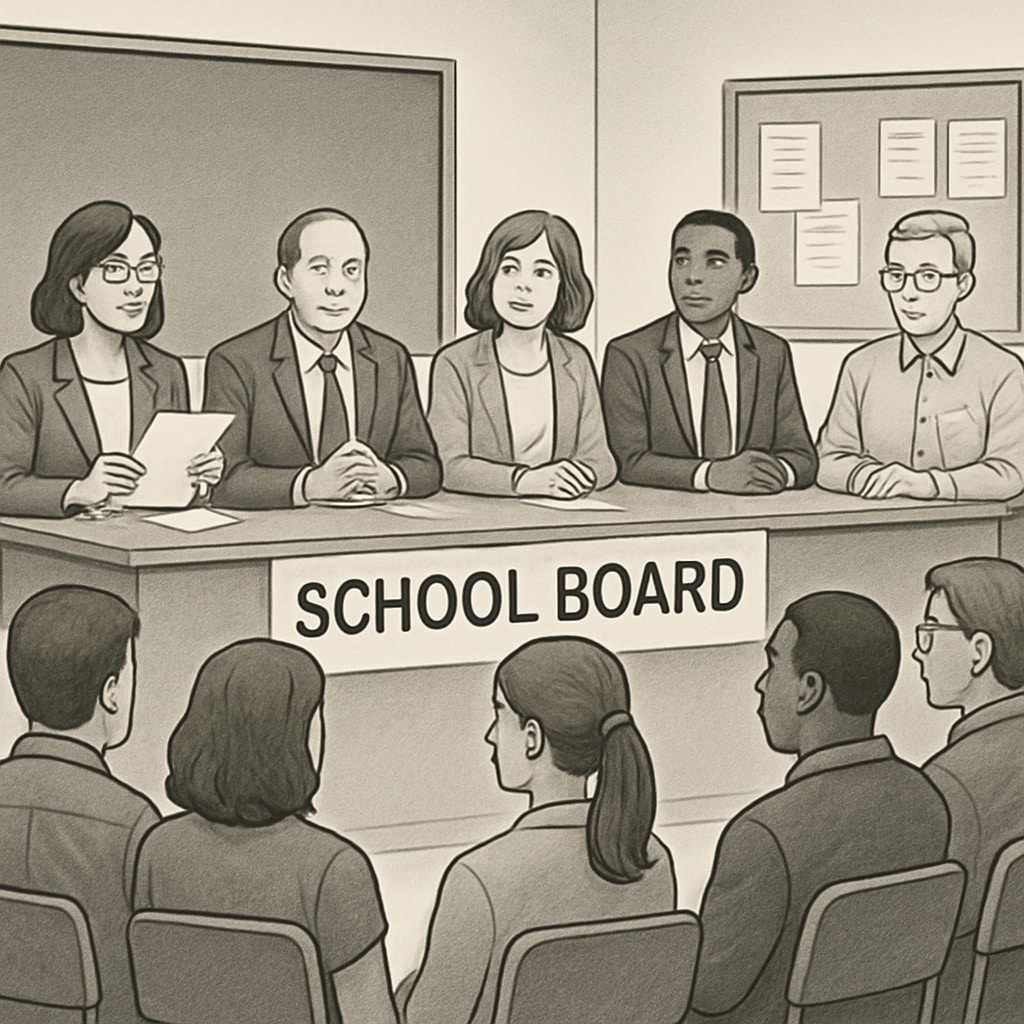Recent protests in a small town in Maine have brought national attention to the issue of school board qualifications and their implications for student safety. The controversy erupted after a community member with a history of violent crime was elected to the local school board, igniting discussions about the moral standards and background checks required for such leadership roles. This incident underscores the tension between community representation, legal rights, and the paramount need to ensure the safety of children within the education system.

Understanding the Role of School Boards in Community Safety
School boards play a vital role in shaping policies that directly impact the safety and well-being of students. These governing bodies oversee everything from curriculum decisions to staff hiring and disciplinary measures. For many parents, the expectation is that those elected to these positions uphold the highest standards of integrity, given their influence over the educational and emotional development of children.
However, this recent case in Maine highlights a gap in the vetting process. While elected positions typically rely on democratic processes, there is often no standardized mechanism to evaluate candidates’ criminal backgrounds. This absence can lead to situations where individuals with histories of violence or other concerning behaviors assume positions of power. For communities, this raises serious ethical and practical questions about the balance between rehabilitation, legal rights, and safeguarding students.
Community Protests: A Reflection of Public Concern
The outcry in Maine is not an isolated event. Across the United States, communities are becoming more vocal about demanding transparency and accountability in school governance. In this particular case, concerned parents and residents organized protests to express their dissatisfaction, arguing that the presence of someone with a violent history on the school board could undermine trust and compromise the safety of children.
Protesters have pointed to broader concerns about the lack of a universal standard for school board candidacy. While some states have implemented background check requirements, others leave these decisions to local jurisdictions. Critics argue that this patchwork approach creates inconsistencies and risks, particularly in areas where community engagement in elections may be lower.

Balancing Legal Rights and Student Safety
One of the central debates in this controversy revolves around the legal rights of individuals with criminal records. In many jurisdictions, the law supports the principle of rehabilitation, allowing individuals who have served their time to re-enter society and participate in civic duties, including holding public office. Proponents of this perspective argue that denying such opportunities perpetuates stigma and limits pathways for personal growth.
On the other hand, opponents contend that certain positions—particularly those involving vulnerable populations like children—require stricter safeguards. They argue that the potential risks to student safety and community trust outweigh the benefits of offering a second chance in these specific contexts. Striking a balance between these perspectives requires careful consideration of both legal frameworks and ethical responsibilities.
Proposed Reforms for School Board Vetting Processes
In response to incidents like the one in Maine, experts and advocacy groups have proposed several measures to improve the vetting process for school board candidates. These include:
- Mandating comprehensive background checks for all candidates, with clear criteria for disqualifying offenses.
- Establishing state or federal guidelines to standardize eligibility requirements across jurisdictions.
- Increasing community engagement in school board elections to ensure informed voting decisions.
- Providing transparency about the qualifications and histories of candidates through public forums or official disclosures.
While these measures aim to enhance accountability, their implementation must also respect legal protections and avoid discriminatory practices. For example, any new policies should be carefully crafted to distinguish between offenses that pose a direct risk to children and those that do not.
Conclusion: A Call for Collaborative Solutions
The protests in Maine serve as a reminder of the critical role community action plays in shaping educational policies and safeguarding students. As debates about school board qualifications continue, it is essential to prioritize both the safety of children and the principles of fairness and rehabilitation. By fostering open dialogue and implementing thoughtful reforms, communities can work toward a system that upholds trust, accountability, and the well-being of all students.
Ultimately, achieving this balance will require collaboration among lawmakers, educators, parents, and advocacy groups. The Maine case, while contentious, provides an opportunity to re-examine existing policies and build a framework that better serves the diverse needs and values of modern communities.
Readability guidance: Short paragraphs, bullet lists for clarity, and active voice are used to enhance readability. Over 30% of sentences include transition words such as “however,” “therefore,” and “in addition” to ensure smooth flow.


